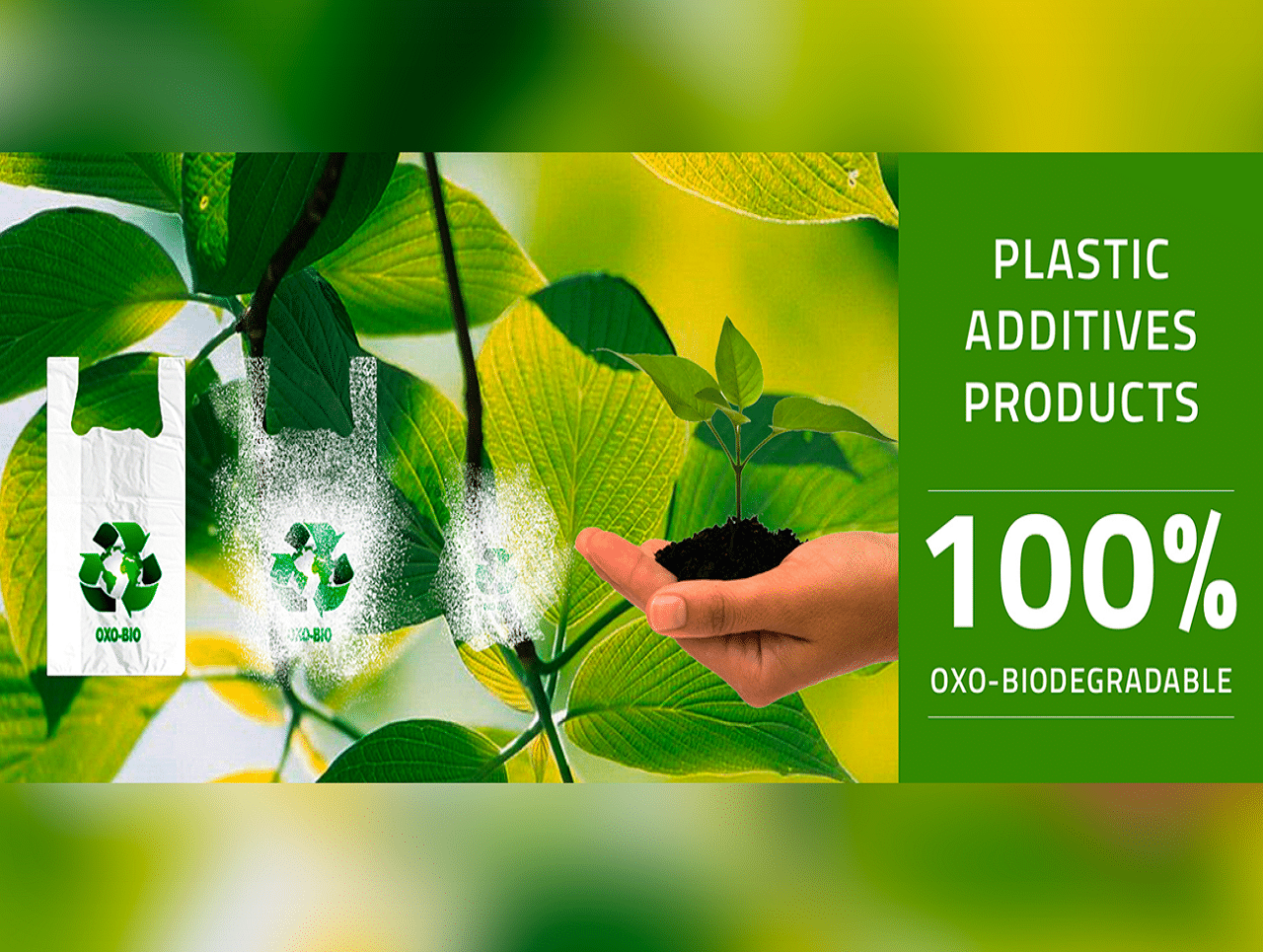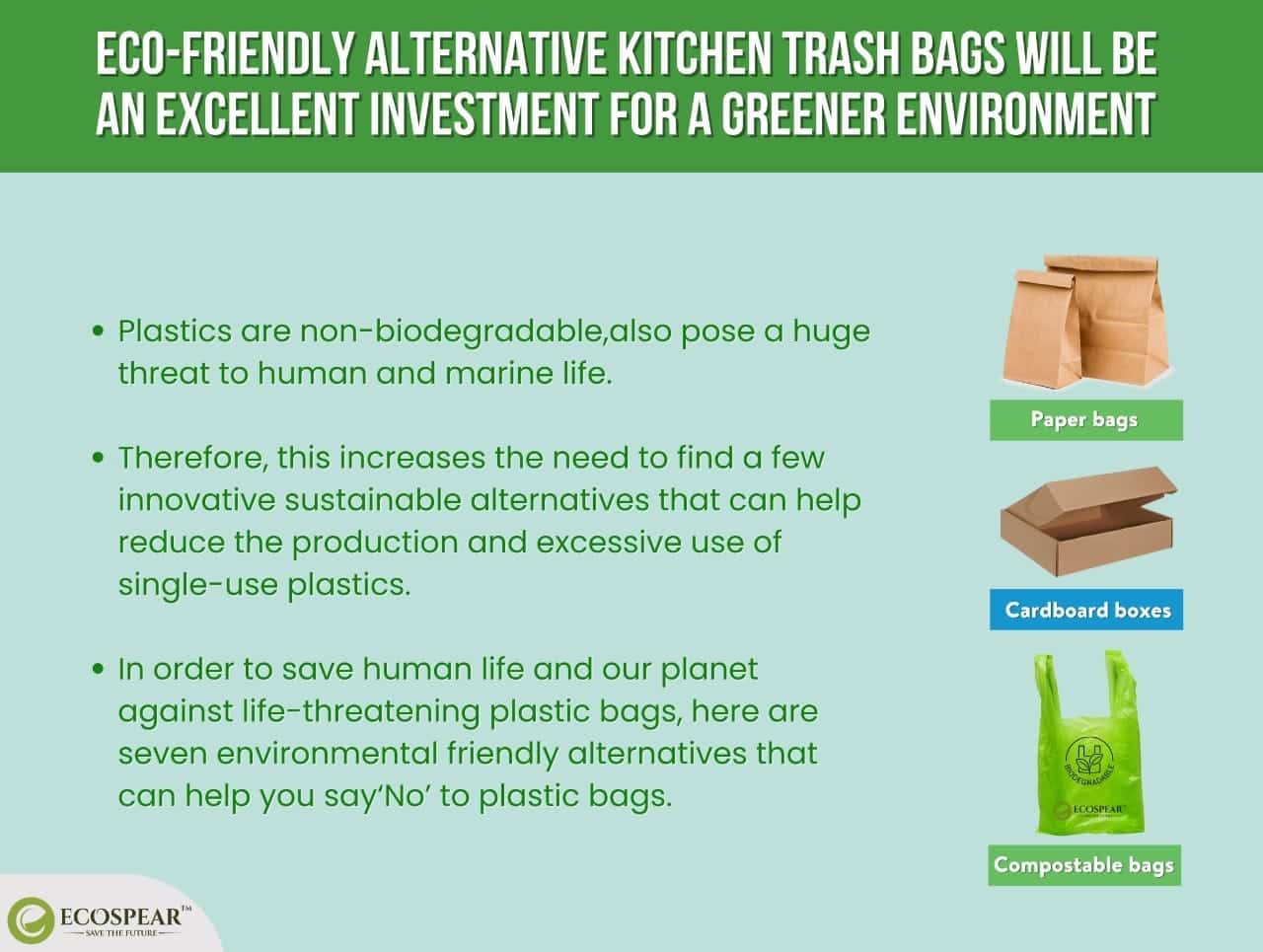The most alarming threat of plastic waste is how fast they build up. Yes, plastic has made our lives easier and safer if you think about mobile phones or helmets. However, the plastic bags we use regularly leave an imprint on the environment we will witness forever.
It is estimated that more plastic waste was produced in the first ten years of the 21st century compared to the previous century, most of which came from plastic bags. With the steady rise in the disposable lifestyle, we are swimming in plastic.
It is seen that:
The global usage of plastic bags lies between 500 billion to 1 trillion as of 2022.
Approximately 10% of these bags find their way to the ocean. That’s between 50 billion to 100 billion bags added to the ocean beds.
Approximately 1 million plastic bags wind up in the trash every minute.
Between 69-95% of the waste on ocean beds is believed to be from plastic bags.
Plastic bags are highly resistant to deterioration and can take 1,000 years to decay.
Apart from having adverse effects, the manufacturing process of plastic bags is also destructive to the environment. Plastic bags or other compounds are manufactured from fossil fuels, releasing toxic chemicals that add to the climate crisis. Besides, the plastics used to make plastic bags often contain chemical components that function as endocrine disruptors. Using these bags can lead to diseases like:
- Congenital disabilities.
- Cancer.
- Depression in the immune system.
The above cases are valid for both humans and animals. Some of the chemicals leached from plastic bags may cause impaired growth in organisms. This includes Prochlorococcus, a microorganism responsible for producing approximately 10% of the oxygen in the world. As plastic bags degrade, they dissolve in the soil and convert into microplastics. We become the direct consumers of these microparticles by consuming vegetables or animals that feed on those plastic-contaminated lands. Plastic, in general, is so resistant to deterioration that the EPA announced that 100% of all human-made plastics still exist in some form.
The Plastic Scenario in Bangladesh
Bangladesh is also not free from the plastic bag menace. In fact, Bangladesh is one of the top plastic-polluting countries . Images of clogged rivers and occasional floods in the coastal areas depict the gravity of the situation. Here’s what the plastic scenario in Bangladesh looks like:
Around 73,000 tonnes of plastic waste wind up in the sea daily through the Padma, Jamuna, and Meghna rivers and threaten marine life.
Plastic comprises 8% of the total waste produced daily, most of which is from plastic bags.
The growth in biowaste is about 5.2%, while plastic waste is 7.5%.
In Old Dhaka alone, 250 tonnes of non-recyclable plastic materials, including bags, are sold monthly.
In addition to domestic waste, plastic waste from China, India, and Nepal flows through the Ganges, Brahmaputra, and Yamuna and accumulates in our water bodies, including canals and rivers. Despite the awareness programs conducted at different scales, 61% of Bangladesh people use plastic bags, and over 100 factories in Dhaka and Chattogram produce plastic bags daily.
During a seminar on plastic pollution in 2018, UNDP’s Program Specialist Arif M Faisal said plastic production emits greenhouse gases and contributes to global warming while harming the soil and water. This adversely affects the government’s Sustainable Development Goals (SDGs) achievement. According to research published in Science Advances journal, half of the plastics used are designed to use only once.
The world is now on the rim of an ecological catastrophe. We need to cut down on plastic consumption to save our planet. Since precaution always lies in the little things, let’s start looking for alternatives to plastic bags that we can use to shop comfortably while contributing to the environment. There are so many ways to be sustainable this year and beyond.
This guide explores the ten best alternatives to plastic bags.
Ten Best Alternatives to Plastic Bags:
Though some of these sustainable alternatives are a little more expensive than plastic bags, they’re long-term investments and can save your wallet in the long run:
1. Backpacks:
Most of us already own a backpack. And if you don’t, there are plenty of options in the market. You don’t have to get new gear for grocery shopping. Any light bag will go as long as it’s clean. You can also buy a secondhand backpack at meager prices.
Pros:
- Hands-free and easily fits your back
- Several chambers allow you to separate the solid from the liquid to prevent spillage
Cons:
- Might get heavy
- Some stores may not allow backpacks inside
2. Recycled Paper Bags:
Next, we have recycled paper bags. Yes, we chop trees to make paper, but they decompose more quickly than plastic bags. Moreover, they are 100% recyclable, unlike plastic bags. If you want to live an eco-friendly life, use recycled paper bags. When you want to throw them, make sure you’re tossing them in a bin dedicated to recycling.
Pros:
- It needs only a month to decompose
- Less risk of suffocation if you have pets or children
Cons:
- Not waterproof
- It might produce water pollutants during recycling
3. Cotton Tote Bags:
The classic tote bag is fun, sturdy, and fashionable. The load usually comes in a sleek design that is easy to fold and carry anywhere. If you’re planning to get this one, make sure you’re purchasing the cotton tote bag. Most tote bags on the market are made from virgin materials and have the same decomposition structure as plastic bags. So, watch out for what you are buying.
Pros:
- Light and portable
- It can be used efficiently for 2-3 years
Cons:
- Not water-resistant
- Colors can come off during a rinse
4. Foldable Shopping Bags:
Foldable shopping bags are environmentally-friendly. One of the best features about these bags is they last for years. Since they are foldable, they don’t consume much space. And the different colors and patterns make it a staple for fashion lovers.
Pros:
- Versatile and durable
- Comparatively cheaper than cotton tote bags
Cons:
- Requires a regular wash
5. Reusable Mesh Carry Bags:
Mesh bags are a great alternative to plastic shopping bags. They are functional, durable, and reusable. The availability of different colors and styles makes them a wise option. You can easily use them to carry flowers, bottles, and groceries and even walk with your favorite books. Since the product can hold up to 18 kg, you can accommodate all your purchases. Eco-activists suggest the bags are reusable from 150-250 times.
Pros:
- Roomy yet compact
- Sturdy and durable
Cons:
- Not waterproof
- The holes may widen at any time
6. Jute Bags:
Jute is a natural fiber and quickly disintegrates under natural conditions. These days organic cotton fiber is also used to make similar bags. However, the manufacturing process releases toxins that are harmful to the environment. So, if you’re purchasing jute bags, get them from a socially responsible store. Otherwise, people might dupe you with organic cotton bags.
Pros:
- Versatile and durable
- One of the leading eco-friendly products
Cons:
- Water decreases the jute’s strength
- Difficult to fold
7. Cardboard Boxes:
Yes, cardboard boxes do work as a plastic bag alternative. Instead of storing your regular stuff in plastic bags, use cardboard boxes. You can easily keep your unused clothes, plates, or books here. Since there’s no risk of suffocation, you can let your pets play with them.
Pros:
- Durable and strong
- Accessible in most super shops
Cons:
- Not waterproof
- Bulky
8. Extra-large Silicone Bags:
Ditch the habit if you’re still hoarding plastic bags to store your groceries. Instead, invest in full-sized silicone bags as they’re spacious enough to hold your full-sized produce and easily recyclable.
Pros:
- Reusable & long-lasting
- Leak-proof because of the hermetic seal
Cons:
- Expensive
9. Beeswax Wraps:
Beeswax wraps are entirely natural, made from beeswax, organic cotton, and natural oils. Since the composition is super eco-friendly, these wraps disintegrate quickly without external conditions. Further, the wraps can last up to a year, meaning they are an excellent investment to replace your plastic goodies.
Pros:
- Washable and can be air-dried
- Best for storing food
Cons:
- Not recommended for shopping
10. Canvas Bags:
Canvas bags are traditional cotton bags that are foldable and portable. Unlike jute bags, canvas bags are more pliable and don’t lose their strength when washed. However, it would be best if you cleaned them regularly to prevent bacterial growth.
Pros:
- Roomy and large
- Super-lasting
Cons:
- Bulky
End Words:
There is no end to the use of plastic bags. When walking down a grocery aisle, we see everything come in plastic packaging.
Can it change?
Yes, of course! And the change begins with you. These were our ten best plastic bag alternatives. Imagine if the consumers stopped using plastic bags. There’d be no more demands for it, and the world would be much greener. So, step forward and become the change maker. Your attempt to ditch plastic means the world to us.





